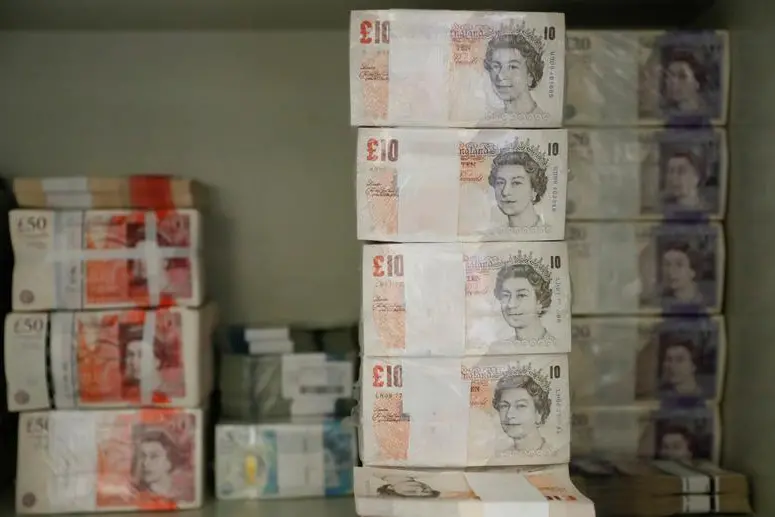PHOTO
LONDON/NEW YORK - Sterling fell from a 2-1/2-year high versus the dollar on Friday after Britain and the European Union failed to strike a trade agreement, with discussions paused so negotiators could talk to politicians for guidance.
The euro also turned higher against sterling after the Brexit news.
With less than four weeks left until Britain leaves the EU's orbit on Dec. 31, both sides have said the talks are stuck on three areas, with each calling for the other to compromise to secure a deal governing almost $1 trillion of annual trade.
British Prime Minister Boris Johnson and European Commission President Ursula von der Leyen will discuss the state of Brexit talks on Saturday.
In late trading, the pound slid 0.1% against the dollar to $1.3434 after hitting $1.3540, its highest since May 2018. It also slipped against the euro, which was last up slightly at 90.35 pence.
As sterling hit 2-1/2-year peaks versus the dollar on the expectation that there would be some sort of a Brexit deal, traders had ignored reports that the Bank of England could probably cut interest rates slightly below zero.
Sterling is see-sawing, sometimes wildly, on comments from British and EU officials on the likelihood of a deal as they try to reach agreement before a transition period ends on Dec. 31. The transition period began after Britain's formal departure from the EU last January.
Traders' nervousness was reflected in the derivatives market, as one-week implied volatility gauges - derived from the cost of options and incorporating risk posed by an EU summit next week - rose to their highest since March at 13.7%. Two-week vols hit similar levels.
On top of that, a premium for one-month sterling puts over calls - showing downside protection - on one-month-expiry risk reversals is trading at 2.5, its highest since the 2016 Brexit referendum, excluding the rise last March.
Although traders were looking mainly to this weekend for a trade deal, investors are also looking ahead to the virtual EU summit on Dec. 10-11, another possible date for a deal to be agreed. But the sides have missed a number of deadlines and issues such as fisheries and state aid remain unresolved.
Some investors said negotiations could stretch into 2021 even though Britain has repeatedly ruled this out.
"It’s conceivable that they don't come to any agreement before the transition period ends on Jan. 1 and continue negotiating some sort of trade deal even after the UK has crashed out with no deal," said Marshall Gittler, head of investment research at BDSwiss Group.
"I expect sterling to remain volatile indefinitely."
(Reporting by Olga Cotaga in London and Gertrude Chavez-Dreyfuss in New York; Editing by Toby Chopra, Timothy Heritage and Marguerita Choy) ((gertrude.chavez@thomsonreuters.com; 646-301-4124; Reuters Messaging: rm://gertrude.chavez.reuters.com@reuters.net))





















